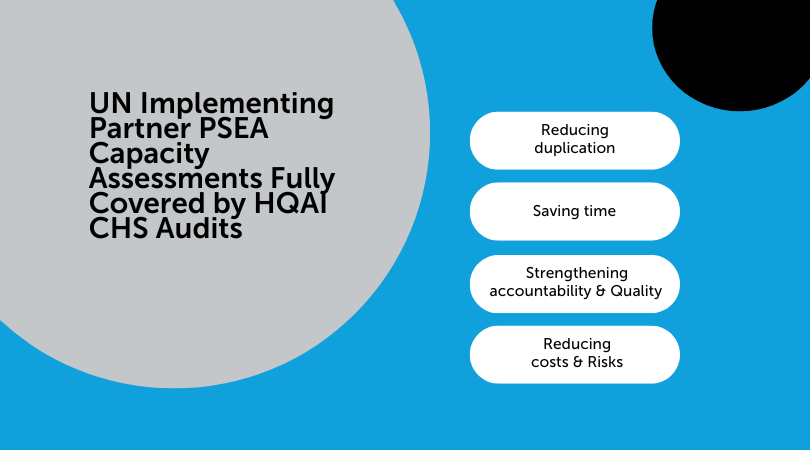Improving Efficiency in PSEA Assessments and Due Diligence

June 2024
HQAI CHS audits can objectively inform 100% of UNICEF’s PSEA assessment for CSOs. As part of ongoing efforts in the aid community to reduce duplication and streamline administrative efforts, this objective coverage has the potential to result in significant savings for UNICEF, other UN agencies and their partners, without compromising on the rigour of assessments.
The humanitarian and development sector needs to find ways to operate more efficiently and effectively. One significant area for improvement is the vetting of implementing partners, particularly in relation to Protection from Sexual Exploitation and Abuse (PSEA). Currently, UN agencies have agreed to accept the findings of PSEA assessments completed by other UN agencies (UN Partner Portal), and thereby avoid duplication of PSEA Assessments by multiple UN agencies on shared partners.
Starting from the finding that 100% of the information needed for an UNICEF PSEA assessment can be covered by HQAI CHS audit evidence, HQAI proposes an approach to leverage the use of its audit data for multiple objectives, including to inform PSEA assessments for UNICEF and potentially other UN agencies.
Read more about the details of this approach and the potential benefits of "passporting" HQAI CHS audits, including quicker vetting of implementing partners, cost savings, and reduced risk through trusted HQAI CHS audits.
Category